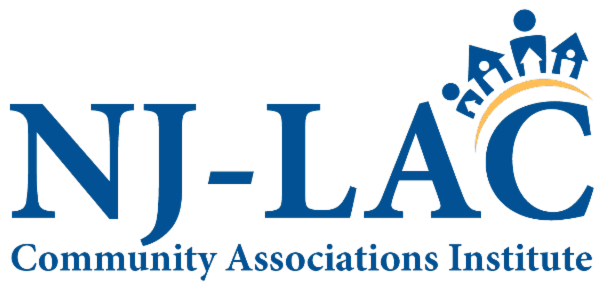Articles
How to Prevent Frozen Pipes: What to Do Now and How to Stay Protected
Taylor Management
This winter’s extended stretch of low temperatures has created ideal conditions for frozen pipes and ice damming. Both issues can lead to serious and costly damage if not addressed, often becoming apparent only after water has already entered the home.
Whether you’re facing an immediate cold snap or planning ahead, these steps will help keep your plumbing safe.
Immediate Steps for This Weekend
If temperatures are dropping soon, take these actions right away:
- Keep Heat On and Steady
Set your thermostat no lower than 55°F throughout the house. Avoid deep night-time setbacks during the cold snap. Consistent heat is far safer for pipes than letting the house cool down overnight.
- Open Cabinet Doors
Open cabinet doors under kitchen and bathroom sinks on exterior walls. This allows warm indoor air to circulate around plumbing that’s normally trapped in cold spaces.
- Let Faucets Drip
For pipes on exterior walls, in garages, unheated basements, or known problem areas, run a slow cold-water trickle, especially overnight and on the windward side of the house. Moving water is much less likely to freeze.
more2026 Legislative and Policy Trends
Community Association Institute
https://advocacy.caionline.org/2026-cai-legislative-and-public-policy-trends/?utm_source=Real%20Magnet&utm_medium=email&utm_content=Advocacy%20Priorities%202026&utm_campaign=209379034
moreWhat to Look Forward to In Community Management in 2026
Taylor Management
As the community management industry moves into 2026, management companies, managers, board members, and residents all find themselves with heightened expectations, challenging new technologies, and a shifting inflationary landscape. The coming year promises meaningful improvements that strengthen operations, enhance homeowner satisfaction, and help maintain long-term asset value. Here are some of the key areas to look forward to as 2026 unfolds.
1. Smarter, More Integrated Technology
2026 will be a landmark year for integrated web-based property management systems. Platforms that were once fragmented—handling payments, maintenance, communication, and inspections separately or on desktops, —are now becoming fully integrated, AI-powered, and cloud-based. More specifically look for:
- Centralized dashboards combining homeowner user experience and the management of leasing, financials, work orders, violations, unit modifications, registrations, package tracking, and visitor management
- AI tools that automate routine tasks like payment reminders, homeowner FAQs, bank reconciliations, budgeting, and vendor scheduling
- Predictive maintenance alerts that reduce emergency repairs and extend equipment life
Preparing a Townhome Community for Winter
Taylor Management
As temperatures drop and the first signs of winter begin to appear, preparing a townhome community becomes essential for safety, comfort, and property protection. Unlike single-family homes, townhome communities share infrastructure, responsibilities, and amenities—meaning winter prep requires coordination and a proactive approach.
Proper planning not only prevents costly damage but also ensures residents can enjoy a smooth, stress-free winter season. Here’s how communities can get ready before the cold weather arrives.
1. Inspect Roofs, Gutters, and Downspouts
Townhomes often share rooflines or drainage systems, making maintenance especially important. A well-maintained roof and drainage system prevent water backup, leaks, and freeze-related damage.
-
Ensure gutters and downspouts are clean and free of debris.
-
Check for loose shingles, flashing, or areas prone to ice dams. The latest trend is to use drone inspections to identify serious roofing or siding issues.
-
Schedule roof inspections and repairs before temperatures drop.
2. Winterize Irrigation Systems and Outdoor Plumbing
moreBuilding Community Spirit this Halloween- Tips from Your HOA Management Team
Taylor Management Lifestyle
As the leaves turn and pumpkins appear on porches, Halloween is the perfect time for neighbors to come together in fun, festive ways. At Taylor Management Company, we love seeing how this season brings out the creativity, camaraderie, and community spirit that make our neighborhoods feel like home.
Here are a few tips and reminders to help ensure a safe, inclusive, and spook-tacular Halloween for all:
1. Decorate with Spirit – and Safety in Mind
Encourage residents to join in the fun by decorating homes, doors, and community spaces. Just be sure decorations don’t block walkways or exits, and use flameless candles or LED lights for jack-o'-lanterns to avoid fire hazards. It is important to communicate with the residents what is allowed in your community, especially when it comes to open flames.
Dependent on the layout of your community, remind drivers to slow down and stay alert for children crossing streets or walking between parked cars. Consider placing temporary cones or signs near high-traffic areas to increase awareness
2. Trick-or-Treat Guidelines
Set clear community trick-or-treat hours and communicate them via email blasts, community boards, or signage. This helps parents plan and ensures everyone knows when to expect little ghouls and goblins knocking.
moreSmart HOA Budget Planning: How to Get Ahead Before Year-End
Taylor Management
As the year winds down, boards, property managers and accounting departments have a crucial opportunity to review expenses, anticipate upcoming needs, and set their communities up for financial success. Smart budget planning now can prevent surprises, maximize resources, and ensure that residents enjoy a well-maintained, thriving community.
1. Review Year-to-Date Spending
Start by evaluating actual expenses against your budget. Identify areas where spending exceeded expectations and where funds remained underutilized. This insight can guide adjustments for the remainder of the year and inform next year’s planning.
2. Plan for Seasonal and Upcoming Expenses
Fall and winter bring predictable costs—landscaping cleanup, HVAC servicing, snow contracts, and holiday lighting. Preparing for these expenses now helps avoid last-minute budgeting stress.
3. Prioritize Maintenance and Capital Projects
Assess the status of ongoing maintenance and capital improvement projects. Are there repairs or upgrades that can be deferred to next year? Are there critical projects that must be completed before winter? Planning ahead ensures smooth execution without financial strain.
moreS3992 Amending Legislation to S2760 Structural Integrity and Reserve Funding
NJ Legislation Action Committee (LAC)
Mitch Frumkin, RS, PE, David Ramsey, Esq. & Ed San George, PCAM
NEW JERSEY LEGISLATIVE ACTION COMMITTEE
Dear CAI Members:
The New Jersey Legislative Action Committee NJ-LAC) is pleased to announce that Governor Murphy signed Senate Bill No. 3992 into law on August 21, 2025. The legislation was sponsored by Senator Troy Singleton, Assemblywoman Yvonne Lopez, Assemblyman Sterley S. Stanley, and Assemblywoman Tennille R. McCoy.
The bill was introduced earlier this year in response to feedback legislators were receiving from constituents regarding the reserve portion of the Structural Integrity and Reserve Funding legislation, which was signed into law on January 8, 2024 (S2760).
The NJ-LAC assisted Senator Singleton with drafting the original bill as well as this amendment and provided critical testimony to legislators. The amendment passed unanimously in both houses in July and was sent to the governor for signature.
This legislation amends the reserve section of S2760, ONLY. There are seven points of amending language and requirements in S3992, as follows:
- The word “adequate” when addressing reserve funding obligations is now more clearly defined such that capital reserve funding plans ensure the balance in an association's reserve fund never falls below zero dollars over the required 30-year funding period.
- The law requires that all reserve studies must include a baseline or zero-threshold funding plan. This means that during the 30-year-projection included in the reserve study the reserve fund balance will reach zero on one or more occasions. While such a plan involves a level or risk since it provides no cushion in the event one or more components do not reach their expected life or they cost more than projected to replace, for associations that have been significantly underfunded it provides a more comfortable approach to complying with the original law.
- An association existing as of the effective date of this legislation shall either: (1) fund the reserve fund in accordance with one of the funding plans set forth in the most recent capital reserve study prepared on behalf of the association; or (2) fund the reserve fund in an amount equal to 85 percent (85%) of one of the capital reserve funding plans prepared on behalf of the association.
- If a board chooses to fund at an 85% funding level in their budget, the Association must provide notice to all unit owners in 20-point bold font specifying that the board has elected to fund reserves at an 85% of the funding plan recommended by the association's 30-year capital reserve study and funding plan. As the 85% funding plan will result in a negative balance in the 30-year funding plan, the notice shall provide the year in which a special assessment or loan is anticipated as a result of the reduced funding. The notice shall also present the anticipated amount of the special assessment or loan resulting from the reduced funding.
- Further to the above, when funding is at 85%, prior to the execution of a contract for the purchase of a residential unit, the SELLER must provide the buyer with a copy of the most recent notice to unit owners in the association regarding reserve funding.
- The 85% funding method may not be utilized by an association for more than five (5) fiscal years. Thereafter, a zero-dollar funding plan must be the minimum.
- The legislation again confirms that all associations must update their reserve study every five (5) years and that the reserve study must be prepared by a Reserve Specialist or a licensed engineer or architect.
Why are HOA Dues Rising?
Taylor Management
Homeowners across the country are feeling the pressure as their annual HOA/ COA (Homeowners Associations) dues steadily rise — and for some, surprise special assessments are adding even more financial strain. While these increases are often necessary to maintain the value and safety of shared communities, many residents are asking why?
Most homeowners are seeing HOA dues climb between 5% and 15% in 2025 (per TechCollect and Bankrate), with some communities facing even steeper hikes. There are several key drivers behind these increases:
Insurance Premium Spikes
Property insurance costs have skyrocketed due to natural disasters, inflation, and carrier exits from high-risk areas. Insurance premiums consider disasters from all their clients, and account for natural disasters all over the country. Between 2022 and 2023, homeowners’ insurance rates rose by around 11.3%. In 2024, insurance premium averaged another 10.4%, with 33 states reporting double‑digit increases. This figure comes from S&P Global Market Intelligence’s RateWatch, as reported by Insurance Advocate (February 2024). Associations are passing these costs along to homeowners.
moreHOA Special Assessments vs. Loans: Which Is Right for Your Community?
Taylor Management
When renovations, major repairs, emergency projects, or refunding reserves arise in a homeowner’s association (HOA) or condominium community, boards are often faced with a tough question: Should we impose a special assessment or take out a loan?
A special assessment generally is a one-time charge to homeowners, often collected over a short period of time, to fund a specific project. Examples of this may include a roofing or balcony project or an elevator upgrade. A loan, is a financial product offered by HOA lending banks or credit unions. This provides immediate funds for a project, repaid overtime with interest.
When deciding, the HOA board should consider financial, legal, and community factors.
Financial Considerations
· Reserve Funds: is there enough money available in the reserves to cover the expense?
· Cash Flow: Can the association manage loan payments over time without stressing the operating budget?
· Does the association have the legal ability to carry a loan?
Legal Considerations
· Do the association’s governing documents limit borrowing?
moreCommunity Pool Lifeguards: Should Your HOA/COA Say Yes or No?
Taylor Management
A community pool is one of the most valued amenities in any neighborhood—it offers relaxation, recreation, and a place for residents to connect. But when it comes to pool safety, one big question often arises for HOA Boards and community managers: Should we hire lifeguards, or can we operate safely without them?
There’s no correct answer so evaluate the pros and cons below to make the best decision for your community.
The advantages of hiring lifeguards are:
Ø Enhanced Safety and Supervision. The most obvious benefit of hiring lifeguards is improved safety. Trained lifeguards are certified in CPR, rescue techniques and first aid. This added supervision can significantly reduce the risk of accidents, especially in communities with children, elderly residents, or high pool usage.
Ø Peace of Mind. Many residents—especially parents—feel more at ease knowing a professional is on duty. This sense of security can increase resident satisfaction and even enhance property values by demonstrating the HOA’s commitment to safety and risk management.
Ø Risk and Liability Management. Having certified lifeguards may help limit liability in the event of an incident. Some insurance providers even offer better rates or coverage when lifeguards are present.
moreBeautifying Your Community on a Budget: Smart Decorating Tips for HOAs
Taylor Management
Creating a warm, welcoming environment in your community doesn’t have to break the bank. With a bit of planning, creativity, and homeowner involvement, you can enhance your spaces. Here are some tips for those being mindful of costs.
Prioritize High-Impact Areas by identifying the most visible or frequently used areas—such as entry signs, clubhouses, community centers, and mailbox stations. Decorating these focal points gives you the most value for your investment and immediately improves curb appeal for residents and visitors.
Embrace Seasonal Decor with Reusability in Mind. Invest in quality, reusable seasonal decorations that can be stored and used year after year. These may include wreaths, LED lighting, banners, and planters. These can be updated seasonally with minimal expense or reused year after year.
Tap Into Resident Talent and Volunteers. Organize a “Community Volunteer Day” and encourage residents to help with decorating, ideas, or even donations. Put them to work cleaning up flower beds, painting, filling planters, hanging lights, etc.. This not only saves money but also builds a sense of ownership and pride among homeowners.
moreHOAs & COAs: Creating Community Culture
Taylor Management
Homeowners’ Associations (HOAs) are meant to foster a sense of unity and cooperation among neighbors, but the success of these communities depends largely on the culture they cultivate. A welcoming community culture promotes harmony and positive relationships, shared interests and experiences, and ensures that residents feel valued and respected. If you’re in charge of managing or shaping the culture within your HOA, creating an inclusive, supportive, and inviting atmosphere should be a top priority. Here’s how you can do it.
Create a Good First Impression
o Create a welcome package outlining community rules, regulations, and etiquette. This helps residents know what is expected of them from the beginning and provides a sense of structure.
o Assign community ambassadors whom introduce themselves to newcomers and offer guidance and assistance, helping new families integrate into the neighborhood.
o Create a Welcome Kit filled with useful information on local amenities, restaurants contact numbers, services, and events., that personally welcomes new residents and shares information on events, local restaurants, nearby services, etc…
Promote Respect
moreHOA Celebrations: 7 Ways to Celebrate Valentines Day in Your Community
Taylor Management
The origin of Valentine’s Day is a bit of a mystery. While February has long been celebrated as a month of love, St. Valentine’s Day, as we know it, blends both Christian and ancient Roman traditions. But who was Saint Valentine, and how did he become linked to this age-old celebration?
Origin Story 1: One popular legend suggests that Valentine was a priest in third-century Rome. Emperor Claudius II believed that single men made better soldiers than those with wives and families, so he banned marriage for young men. Valentine, seeing the injustice of this decree, secretly continued performing marriages for young couples. Once his actions were discovered, Claudius had him sentenced to death.
Other accounts point to Saint Valentine of Terni, a bishop, as the true origin of the holiday, who, like the priest, was beheaded by Claudius II near Rome. Valentine may have been executed for attempting to help Christians escape brutal Roman prisons, where they were often subjected to beatings and torture. One legend even claims that while imprisoned, Valentine sent the first "valentine" greeting. It’s said that he fell in love with a young girl—possibly the jailor's daughter—who visited him during his confinement.
moreCommunity Board Members: The Emotional Climate of Communications
Sarah Hash, CMCA Taylor Management
The topic of declining common courtesy and polite communication has certainly been a prevalent discussion among professionals and the general public in recent times. There is a growing consensus that since the onset of the COVID-19 pandemic, a notable shift has occurred in the way many people interact with one another, with a marked increase in defensive, rude, and discourteous behavior. While it's understandable that the stresses and uncertainties of the past few years have taken a toll on everyone's mental and emotional wellbeing, that reality does not excuse the all-too-common displays of impatience, short-temperedness, and blatant disrespect that have become disturbingly commonplace in our daily lives. There is a pervasive sense that civility, empathy, and basic manners have taken a backseat to self-absorption and a hair-trigger defensiveness. This is not to say that every interaction is now fraught with rudeness, there are certainly still many people who strive to maintain composure, consideration, and courtesy in their dealings with others. However, the sheer volume of stories, and first-hand experiences of flagrant incivility has led to a widespread sense of desire to understand how address and respond to this troubling social trend.
moreCommunity Association Holiday Decorating Etiquette
Taylor Management Company
Holiday decorations offer a festive way for associations to bring seasonal cheer and create a cozy, welcoming atmosphere in their communities. It has become important to recognize that community decorating has become complex, involving cultural sensitivity, timing, quantity, and quality. Before decorating community spaces, boards and residents should consider a few key guidelines.
Decorating Guidelines Decorations vary across communities, from modest lights to competitive displays between neighbors. Guidelines in association documents outline where decor is allowed, what type and size are acceptable, and how long it can stay up. Some associations are more restrictive to avoid clutter, specifying locations for decorations.
Timing also matters. Many associations limit holiday decorations to the period from Thanksgiving to shortly after New Year’s, echoing retail's early seasonal rollout. It is important to communicate the rules in your community especially if fines are involved.
Religious Considerations In diverse communities, not all residents celebrate the same holidays. To accommodate everyone, some experts recommend keeping themes neutral or allowing a range of decor options. The U.S. Supreme Court considers Christmas trees and menorahs displayed together to be secular symbols, allowing associations to include them as neutral elements. However, the type of community often determines decor approach: condominium associations usually keep decor neutral and minimal, while HOAs may permit homeowners more freedom in their displays.
moreThe Corporate Transparency Act
Community Associations Institute
CAI has filed a lawsuit against the U.S. Department of the Treasury, Secretary Janet Yellen, and the director of the Financial Crimes Enforcement Network. This action is being taken to protect our members from the burdensome and unnecessary requirements of the Corporate Transparency Act.
The act imposes new reporting requirements on many entities, including community associations. Under the law, volunteer board members of condominiums, homeowners associations, and housing cooperatives will be required to provide sensitive personal information to the federal government. These requirements were designed to combat illegal activities including terrorism financing and money laundering. The Treasury Department has taken a very broad approach to implementing this law, impacting organizations like community associations that are extremely unlikely to be engaged in such activities. We believe the application of the Corporate Transparency Act to community associations is an overreach and potentially unconstitutional.
CAI has worked with the Treasury Department for over a year to pursue a regulatory exemption for community associations but has been unsuccessful. Since the law’s implementation date for existing associations is rapidly approaching on Jan. 1, we determined that a lawsuit was necessary to protect community association rights and ensure they are exempt from the act.
moreCommunity Lifestyle: How Lifestyle Programming Can Benefit Your Community
Taylor Management
No matter if you live in a single-family home, a luxury high-rise, a 55+ community, or a townhome, your community has its own unique culture, and lifestyle programming can help enhance it. Often called common-interest communities, these types of neighborhoods are becoming more popular among homebuyers. In fact, over 25% of homeowners now live in such communities, and 60% of new homes are being built in these settings. So, what makes these communities special, what benefits do they offer, and how can your manager or management company support a vibrant lifestyle?
Lifestyle communities often include one, or more of the following:
· Amenities :Swimming pools, gyms, tennis courts, sports courts, clubhouse facilities, workspaces, and entertainment areas.
· Activities: Recreational and social activities to help residents stay active and engaged.
· Clubs: Groups of residents that share a common interest or hobby.
· Events: Events and functions to gather residents together.
The Benefits of Lifestyle Shared Communities
· Financial: A buyer tends to get more house and incur less maintenance expense by living in a shared community.
moreCommunity Management: Questions to Ask When Buying Into an HOA
Taylor Management
Did you know that the majority of newly developed homes nationally, include a Home Owner’s Association (HOA)? It is important to do your homework when buying into any HOA including High Rise Condominiums, Townhomes, Active Adult Communities, and even Single-Family Neighborhoods. Here are some questions you should ask…
1. Ask About the Fees
The most important question is to ask about the monthly fees. How much are the dues, what do they cover, and how often are they due? Consider these fees along with your mortgage and taxes in your decision to buy.
2. Review the Governing Documents
Every HOA is governed by a distinct set of documents, sometimes referred to as Covenants, Conditions, & Restrictions (CC&Rs), that define the authority of the association. In short, these documents detail what homeowners can and cannot do, as well as what the association is responsible for maintaining and insuring.
3. Is the Community Financially Sound?
Reviewing the financial documents of an association ensure your community is financially sound. Ensure there is a properly funded reserve fund and/or capital improvement account for future upkeep and projects. Accounts receivable balances will ensure your neighbors are current with their payments, and the annual budget will allow you to see what your monthly dues are covering.
more"Uninvited Guests: A Guide for Management Companies on Working Effectively with Exterminators
Taylor Management
Effective community management hinges on a delicate balance of responsiveness and strategic planning, particularly when dealing with unwelcome visitors like pests. Whether it's dealing with pesky intruders or tackling more serious infestations, swift and efficient resolution not only preserves the quality of life within the community but also safeguards property values and resident satisfaction. In this comprehensive guide, we explore the best practices for managing exterminator requests, offering expert insights and actionable strategies to streamline the process and ensure the well-being of the community.
1. Prevention is the name of the game
A top notch community management company will always contract with an exterminator that performs regular service checks. Consistently monitoring for cracks or holes in the exterior where pests can infiltrate will prevent any infestation.
2. Targeting the Nests
Between the general nuisance and concern for an allergic reaction, the most common type of service request is for bees, wasps, and other stinging insects. While preventative treatments are available for crawling insects such as ants and spiders, there is no such option for flying insects. In this case, the nest needs to be located and targeted. Requesting pictures of the nest, or utilizing a good landscaper to hunt for their location are always recommended.
moreHOA: What Your Monthly Financials Are Telling You
Taylor Management
One of the board’s most important responsibilities is the management of community finances. Residents are relying on the board and the management company to ensure the protection of their investment and quality of life, all while controlling spending. This has become increasingly challenging as of late, with rising insurance costs, capital reserve legislation, and higher inflation. Before you can make sound financial decisions for your association, you first have to understand what your monthly financials are telling you.
Balance Sheet
A balance sheet is a report that outlines a company’s finances such as assets and liabilities. Your assets summarize cash you have in various accounts as well as money owed to the association. If your association possesses other assets like office equipment, gym equipment, etc. these may also be listed in the asset section of your Balance Sheet. Your liabilities reflect monies owed to outside parties. This may include any outstanding bills, wages, or community loans. In summary, the balance sheet reflects your community’s total net value.
Income Statement vs. Budget
An income statement represents a community’s income and expenditures for a given period of time as compared with an annual budget. Having a properly developed balanced budget is critical in the value of this report. One should investigate any line item that is significantly different than budget. Significant overages can highlight cash flow issues, bill payment issues, or project opportunities. The bottom line summarizes the profit or loss that your association is experiencing for the current fiscal year.
moreHOA Pool Safety: Top HOA Mistakes When Opening a Community Pool
Taylor Management
As the weather warms and summer beckons, community pools become havens of activity and relaxation. However, opening a community pool entails more than just unlocking the gates and filling it with water. It requires careful planning, attention to detail, and adherence to safety standards. Here, we outline the top five most common errors to avoid when preparing to open a community pool.
1. Not Securing the Pool Contract Early
The earlier the better for securing pool contracts. Taylor Management Company starts our pool opening processes, starting with securing the contract, in early March. This guarantees the community is top of the list and avoids unnecessary delays. If a community is unhappy with their current pool company, the manager should request a minimum of three (3) RFPs from reputable pool companies. This should be done in the beginning of the calendar year. Pool companies can have a limited roster of clients. If your management company waits too long, it could mean you aren’t able to open your pool.
2. Excluding Service Details in the Contract
With over 320 communities in our roster, we have managed hundreds of pools of varying sizes and needs. It's essential to detail all expected services provided by the pool company in the contract. These should include opening and closing dates, a cleaning schedule, with vacuuming, skimming, and chemical testing. Additionally, all pool equipment, such as pumps, filters, and heaters, should be evaluated and tested before opening to avoid delays if equipment is non-operational and needs servicing or replacement. A good manager will understand all requirements needed in a pool contract or RFP, and ensure the vendor follows through on contractual obligations.
more5 Community Management Trends to Watch in 2024
CAI Institute
The rise of community associations across the U.S. holds promise for management companies in 2024—but companies also need to be prepared to face a unique set of challenges in the coming year.
Which opportunities and obstacles will association managers face in 2024, and how are they adapting their strategies in this evolving environment? HomewiseDocs surveyed more than 1,100 association management professionals and board members to find out exactly that.
Here are the five trends that our research predicts will shape the community associations industry in 2024, from new opportunities for growth to a greater need for operational efficiency during the ongoing labor shortage.
1. Management companies see tremendous opportunity for growth as HOA development continues.
A survey from HomeWiseDocs found that portfolio growth is community association management companies’ #1 priority for 2024—and a full 91% of community association management companies plan to expand their portfolios over the next two years.
moreCondominium Board Relations: Avoiding Conflicts of Interest
Jennifer Olson
It’s the time of year when many community associations welcome new board members. It also is a great time to review conflicts of interest and how to avoid them.
Community association board members are considered fiduciaries. Fiduciary duty is the highest standard of care imposed under law, and it occurs when one or more persons are responsible for the money or property of another. The fiduciary is expected to be honest, free from fraud, and faithful to his or her obligations.
As defined by the Oxford Dictionary, a conflict of interest is a situation in which a person is in a position to derive personal benefit from actions or decisions made in their official capacity. Accusations of self-dealing or conflicts of interest sometimes arise during the vendor hiring process. Board members who profit financially or who have friends or family members who may profit financially from hiring a vendor risk putting their own interests before those of the community.
That vendor in question may wind up being the best fi t for the community, but there are steps that need to be taken so the hiring process is fair and equitable. To ensure the community comes first, board members should:
moreHOA & COA: Understanding Your Community's Governing Documents
Taylor Management
Being an effective HOA board member means staying organized and on top of all the rules and guidelines that keep your association running. At the heart of this organization are HOA governing documents.
Each HOA is slightly different, and the intricacies behind each set of regulations and guidelines can be complex, but a basic understanding of the different types of documents and their purpose can save your board a world of confusion and headaches.
So, if you’re wondering, “What are HOA governing documents?” You’re not alone.
What Are HOA Governing Documents?
HOA governing documents are the official rules of a community, set down on paper (or these days, more likely digitally) and agreed upon by homeowners in the community and HOA board members.
HOA documents play an essential role in ensuring a community's flawless functioning and maintenance by providing guidelines and regulations to help maintain property values and promote a harmonious living environment. But communities don't run on documents alone.
In fact, many HOA boards choose to partner with an outside HOA management company since working with a reliable HOA management company can significantly assist in efficiently managing the community's day-to-day operations, ensuring that rules are enforced, and addressing any issues that may arise.
more























